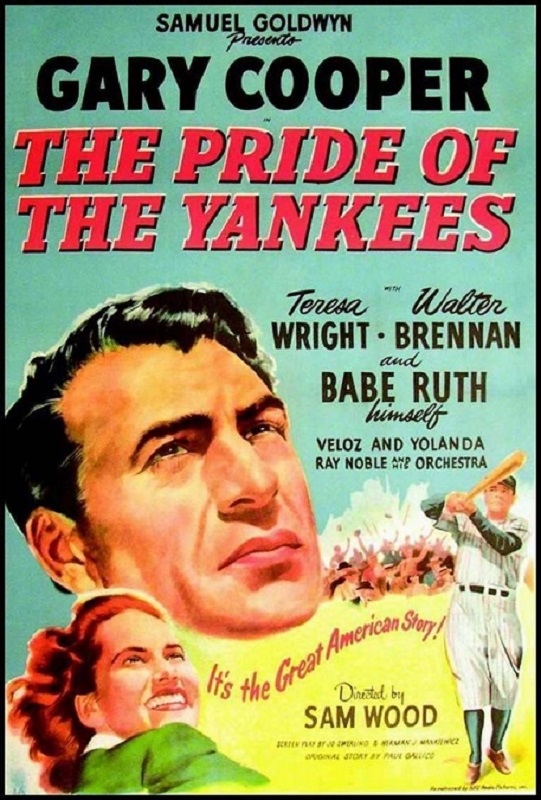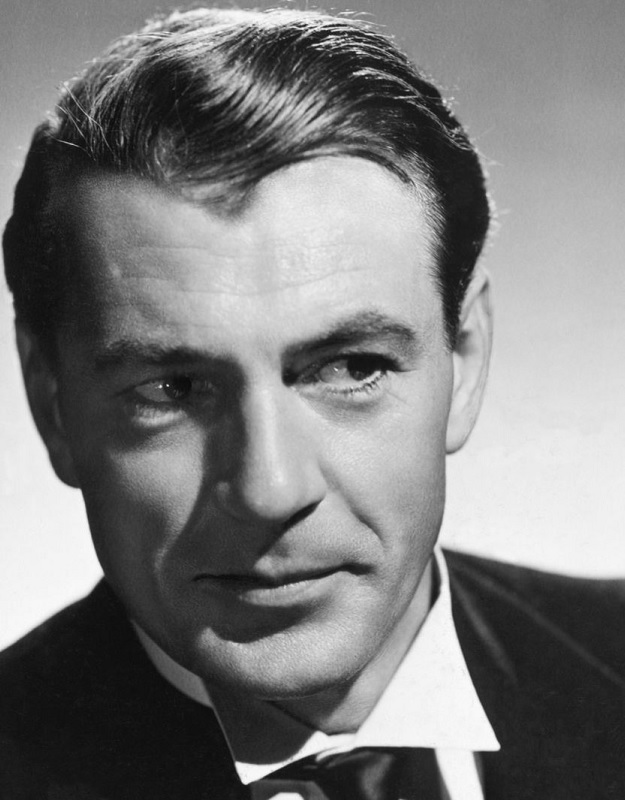


1942 – Gary Cooper
Pride of the Yankees
Gary Cooper is back again, playing the same character. I mean, let’s be honest. He was the same character in Mr. Deeds Goes to Town in 1937, and Sergeant York in 1941. He was that man who is so good and American and wholesome, that he still has that gosh, gee whiz, attitude, even as an adult. And I’ve seen him do other movies that had some grit, some realism. But I guess this is the kind of role audiences wanted to see him play at the time. I look forward to seeing him again in High Noon in 1953. He still had the same squeaky clean image, but he was kind of a bad-ass there, too.
Here, he plays the historic baseball player, Lou Gehrig. And I like that the movie wasn’t just about the tragic disease that claimed him. It was there, but the film was more about his rise to stardom in the world of baseball and his relationship with his wife, Eleanor. And Cooper was never a bad actor, so of course he did a fine job. But if it was a role we’ve all seen him in before, more than once, why was he nominated for Best Actor? I think I might know the answer.
On the surface, he didn’t have to stretch himself much. It was old-hat for him. But it you dig a little deeper, you find that he actually had to work very hard for the role. Lou Gehrig was a famous ball player who was a little different than most of his peers. He was a lefty, but Cooper was not. Cooper had to learn to bat left-handed, throw left-handed, and catch right-handed, all completely opposite of what he would have been used to, what would have been natural for him. And he did it so well, he was believable as one of the most famous lefty players of the time.
And of course, there was the last third of the film, the parts where his debilitating disease started to affect him. There was drama there, which Cooper knew how to sell. The scene where he collapses in the locker-room was heartbreaking to watch. Also, the way he approached the final emotional scene where he says goodbye to the fans at Yankee Stadium was dramatic and heartfelt, a real tear-jerker moment. So I think Cooper absolutely deserved his nomination. But I’m also glad he didn’t win, especially since he had just won the previous year for Sergeant York.





